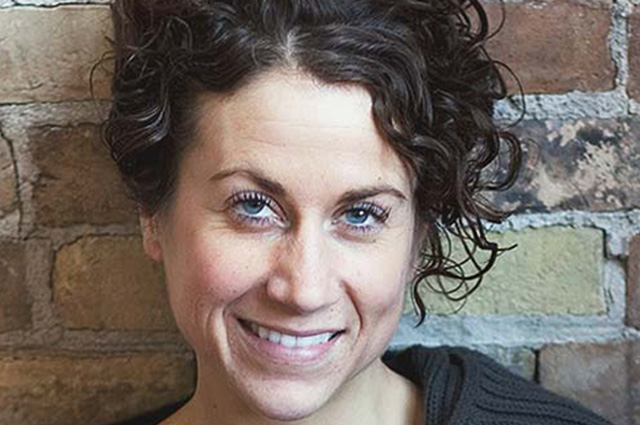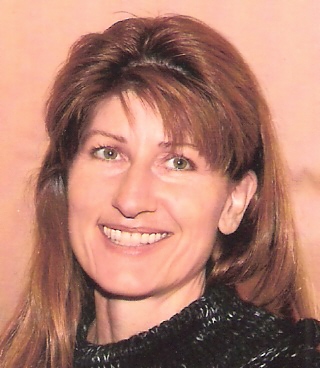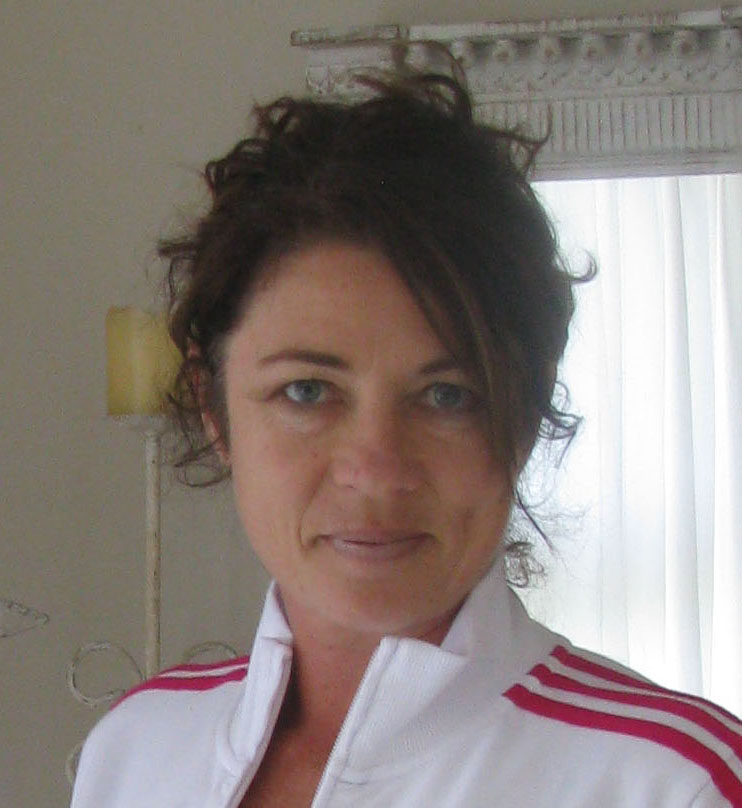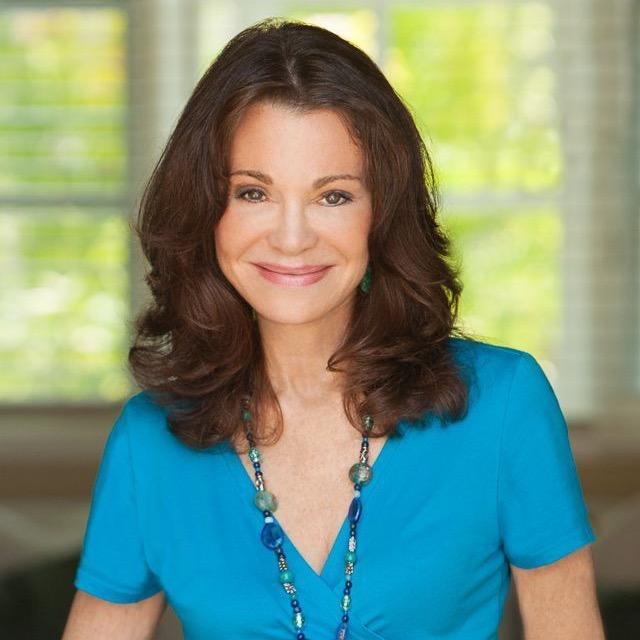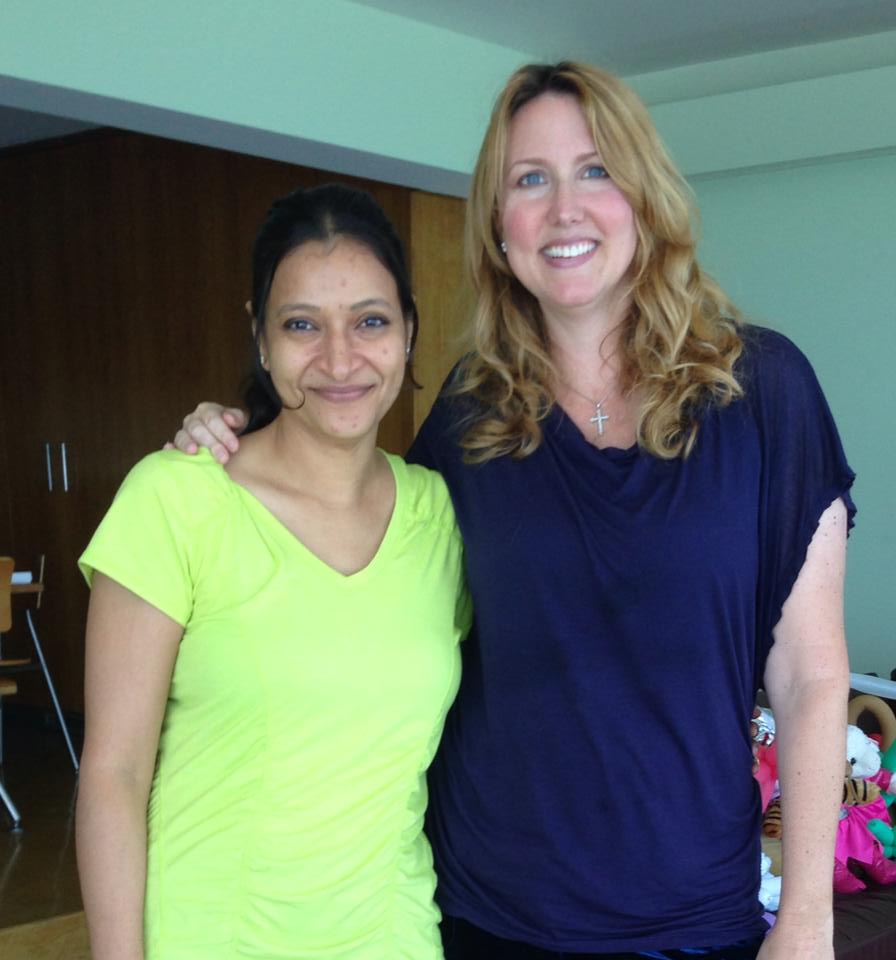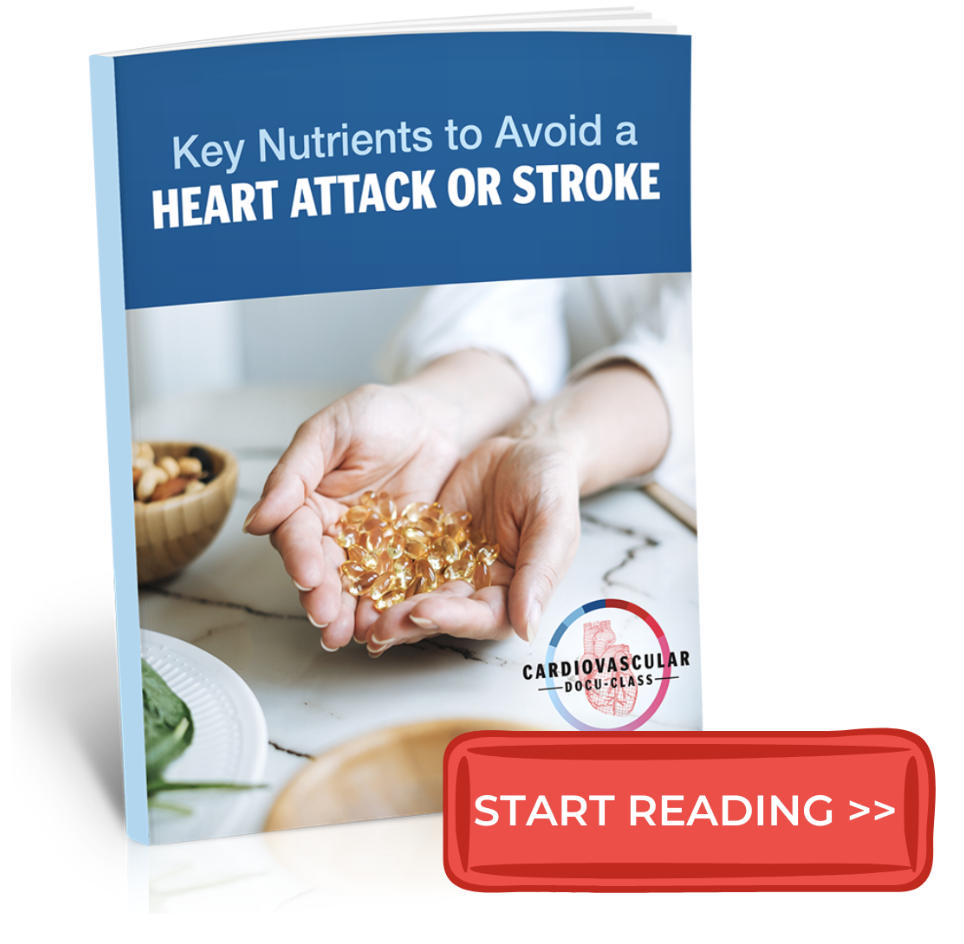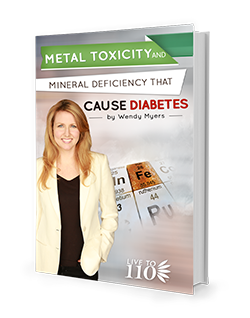Listen
Listen to this podcast or watch the video. CLICK HERE
Transcript
- 03:13 About Maria Emmerich
- 06:15 Maria’s new book: The 30-Day Ketogenic Cleanse
- 08:38 Quick tips from The 30-Day Ketogenic Cleanse
- 13:24 Powering up the mitochondria with the Ketogenic diet
- 18:27 Food as medicine
- 21:20 Protein and blood sugar spikes
- 24:43 Eating in the natural state
- 27:16 Keto supplements
- 28:53 Creating permanent change
- 31:20 Benefits of the Ketogenic diet
- 36:58 Movement and exercise for mitochondrial health
- 41:00 The most pressing health issue in the world today
- 45:07 Where to find Maria Emmerich and The 30-Day Ketogenic Cleanse
Wendy Myers: Hello everyone. Thank you so much for joining us for the Live to 110 Podcast. My name is Wendy Myers. I’m going to be your host today.
And we’re going to be interviewing Maria Emmerich. She’s a friend of mine that I met about five years ago on Jimmy Moore’s Livin’ la Vida Low Carb Cruise. And I learned a lot—I got an earful there—about the ketogenic diet and the benefits of eating a low carbohydrate diet.
And so, that’s what we’re going to be talking about today—the benefits of that, and also, her book, The 30-Day Ketogenic Cleanse. I got a copy of that. It’s a beautiful book. I think it’s a great way to start experimenting to see if the Ketogenic diet can work for you and if they give you some benefits to your health.
We’re also going to talk about if keto supplements are good to take or not and how to improve your mitochondrial function. Lots of really good tips and tricks in this podcast!
But before we get into the show, we have to do the disclaimer. Please keep in mind that this podcast is not intended to diagnose or treat any disease or health condition and is not a substitute for professional medical advice. Please keep in mind this show is for entertainment purposes only. Please consult your healthcare practitioner before engaging in anything that we suggest today on this show.
I’m so thrilled that my book is finally out on Amazon. It’s called Limitless Energy: How to Detox Toxic Metals to End Exhaustion and Chronic Fatigue.
I know so many of you out there are exhausted or you’re just feeling tired when you wake up in the morning and you feel drawn to drinking tea or coffee or even drinking coffee all day long.
Some people are even taking very, very strong stimulants just to stay awake or push through college or push through work and they end up causing many health issues down the road.
So, I want to teach you how to help your body naturally produce the energy that it’s capable of producing. And in order to do that, you have to detox the toxic metals that interfere in your mitochondria’s ability to produce energy.
Your mitochondria make your body’s energy. And if you have metals like arsenic, aluminum, tin, thallium, mercury, lead in your body—which most of us do (we have some level of these metals in our body)—you’re not going to be able to produce the energy that you’re capable of.
And so, it’s very, very simple. You just need to put some time into educating yourself about detoxification. I give you lots of simple tips in this book on how to detox these metal poisons.
So, please go pick it up on Amazon, Limitless Energy: How to Detox the Toxic Metals to End Exhaustion and Chronic Fatigue.
Wendy Myers: So now, for our guest, Maria Emmerich. She is a wellness expert in nutrition and exercise physiology. She shares a passion for helping others reach their goals of optimum health. She struggled with her weight throughout childhood and decided that enough was enough. She decided to study health and wellness, so she could help others stop wasting their time being discouraged with their outward appearance and not feeling their best mentally.
Maria understands the connection between food and how it makes us feel on the inside and out. She’s the international bestselling author of the Ketogenic Cookbook. She also authored eight other books including several cookbooks and three nutritional guide books including Secrets to a Healthy Metabolism which includes a foreword by New York Times #1 bestselling author of Wheat Belly, Dr. William Davis.
One of her books, Keto Adapted, includes a foreword by Dr. David Perlmutter, author of Grain Brain, another New York Times bestselling book.
And her blog includes a unique combination of innovative recipes using alternative ingredients to less healthy options and easy to understand explanations of why these options are better for our health.
She includes with each recipe a snippet of information about different ailments and problems with our health that can be healed with proper nutrition. She has a passion for helping others start a healthier lifestyle. And weight loss is often a side effect of helping treat any number of problems including diabetes, cholesterol issues, alopecia, Hashimoto’s, autoimmune diseases, and so much more.
You can learn more about Maria at MariaMindBodyHealth.com.
Maria, thank you so much for coming on the show.
Maria Emmerich: Oh, Wendy, it is an honor to be here again. Thank you again.
Wendy Myers: Yes! So, why don’t you tell the listeners a little bit about you and why you’re doing the work that you’re doing?
Maria Emmerich: Well, I have been a Ketogenic nutritionist for quite some time now, about a decade. And I was blessed to have someone mention, “You should just write down your recipes and make them into a cookbook. And you could sell them to help raise money for your adoption.” And so I recently got a copy of that first cookbook. It looked like a basement type cookbook where I just put the recipes together.
And then, I was blessed to be asked by Jimmy to write a cookbook with him. And it’s just gone gangbusters.
And the cleanse book came out. And it’s doing great. It’s going to be in Costco’s in a couple of weeks.
And that’s just how I roll. I love to be in the kitchen. I wish I can be in the kitchen every day and cook and write recipes. But the majority of the time, I’m with clients via Skype or phone or something like that.
Wendy Myers: So, you have a new book out called The 30-Day Ketogenic Cleanse. And this book really, really appealed to me because I am trying myself to go completely grain-free. I’ve been doing lots of juicing and eating lots of Keto meals, Keto-inspired meals. And so, for me, I felt like it just kind of like was the thing that I was looking for.
You sent it to me in the mail. And my business partner, she’s diabetic, and she needs to go on a 30-day ketogenic cleanse. So I gave the book to her. I said, “Please do this.”
So, tell us about your book.
Maria Emmerich: Well, I absolutely love that book. We’ve been having really great feedback with it. I think that the majority of people that I consult with are not doing Keto like I personally do. A lot of times, people have loads of dairy in their meals—and nuts and nut flours.
And this book is completely diary-free. There’s not even ghee allowed. There are no nuts. There are no nut flours—which a lot of people on Keto are snacking on nuts and [fruit juice] or something like that.
I just wanted people to have the success and feel as good as they could. You mentioned in my personal bio in the beginning that I grew up overweight and unhealthy and depressed. And I don’t want people to waste their time being like that. I want them to feel awesome.
I won’t tell you how old I am, but I feel better than I did in my twenties. I feel like I wasted a lot of time being sick and going to the doctor, they never asked about my diet. They just said, “You want to go on this antidepressant” and food has so much to do with it.
And so the cleanse, I just dive into how to heal the mitochondria—and I know that’s just something that you’re interested in—through grouded and light and cold therapy and all these things.
We’re so concerned about the food. I wanted people to understand that there’s a whole other connection to what we’re doing that’s pretty much backwards from what society tells us to do that we can do that’s free and is awesome for our mitochondrial health.
Wendy Myers: So, what are some of your tips that you can give us on how to do a 30-day Ketogenic cleanse? What does that look like?
Maria Emmerich: It was hard for me to pick a name, I’ll just say that. But it’s a cleanse because, again, I eliminate dairy and nuts and a lot of these food allergens that I see.
So, the 30-day cleanse is about getting rid of all sweeteners. It’s Whole30-approved, going extremely ketogenic.
But it doesn’t feel like it! You’re eating awesome, like Breakfast Chili and Ramen and all of these really tasty stuff that’s really not that difficult to make.
But then, little steps on when you wake up, let’s get our circadian rhythm in balance and how to get the light therapy and let’s do some cold therapy, how to incorporate exercise, when to do that, what type, how to work out with your cortisol levels.
So, you can take it as far as you’d like to. And my goal is that you don’t have to be overwhelmed when you read this.
Some people do get overwhelmed. But my goal is for you to take one thing and change it this week. And then, once you accomplish that goal, try adding another thing.
I was all about baby steps. I don’t like to get overwhelmed. In college, what I do is […] be like, “Oh, my gosh! I have to do all these in so many months. So I could understand how some people feel they’re overwhelmed.
But my goal is for you to just take something from the book and roll with it for a week. And then, once that’s checked off your list, add another one to it.
Wendy Myers: Yeah! Because I mean Rome was not built in a day. And I never thought in a million years I’d be eating as healthy as I do now and really, really enjoying it.
A lot of people think, “Oh, I got to do a 30-day diet or a 30-day cleanse” and they’re kind of dreading it because they’re not able to have the foods that they typically have been eating, [have nutty] foods or what-have-you. But just slowly, over time, you find it’s easier and easier and easier to eat a Keto-type or a Paleo-type diet or whatever, incorporating more vegetables into your diet if that’s what you need to focus on.
And so, I try to, just like you, encourage people just one day at a time. You don’t need to feel overwhelmed.
Maria Emmerich: Yeah, I was a junk food-a-holic. I mean I talk about my food addiction when I was a kid. I lived on Fruity Pebbles for breakfast and then Coco Pebbles for dinner. It was awful!
And that’s why I don’t judge anybody because I was there myself. I don’t like it when someone says, “I’ll never be able to do this” or “My husband never will do it with me” because I grew up on that type of a diet.
I worked at a coffee shop where I made the muffins and I get to take the extras home at night all throughout high school and college and living off of mochas. And now I don’t believe in coffee whatsoever.
Never say never! We brewed our own beer. We brewed our own wine. We’re a totally different—my husband and I, we’re totally different. Never say never. Little baby steps…
I would remember how I would feel after a night of having a piece of chocolate cake or wine or whatever. I didn’t feel like I knew I could. I love mornings. I love to wake up. I love to run in the morning and get outside. Even in the winter time, I would run outside to get that cold dirt […]
But I just feel that it’s really important to take note of how your body—really, the way you fuel is how you feel.
Wendy Myers: Yeah! When I eat a piece of chocolate cake, I feel like crap! And I used to eat that and think, “Oh, this is so good,” I enjoy it, and I’m just having that little party in my mouth and what-not. But over time, you begin to make those associations, “This is going to make me feel terrible. I’m going to be an hour late. I’m going to have a crash and brain fog and fatigue. I’m going to fall asleep in my desk.”
And so, you just have to try to disconnect from that pleasure you’re getting for five seconds.
Maria Emmerich: I was going to say… that five minutes of party in your mouth, you could have days worth of whether it be fibromyalgia or whatever type of pain you have (or just your gut pain or whatever it is).
Wendy Myers: So, you talk about the mitochondria in the book and healing our mitochondria. How do you do that doing a ketogenic type diet? What’s involved with that?
Maria Emmerich: Well, with the mitochondria, the mitochondria is about—every cell in your body has a mitochondria. And the primary part of your mitochondria is all water. It’s like 99.9% water. And that water can be positively charged or negatively charged.
We want it to be negatively charged. However, to do that, we need to ground to the earth and get it cold and…
Did you hear about cryotherapy?
Wendy Myers: Yes.
Maria Emmerich: …where people go to hospitals? You can do that at home. We do that all the time where we do ice baths. You just get your body cold.
We’re never in that environment where we are forcing our bodies to get cold or get hot. We’re in an environment where we have heaters on or we have air-conditioners on.
I talked to a doctor who he wrote a book about hiking Mt. Kilimanjaro naked […] He made his body get cold and how it’s helping heal Crohn’s and colitis.
We’re never making our body work to make it warmer. So, drinking ice cold water—and along with that, a lot of it.
Again, 99% of your cells are water, so we need to keep filtering that and making sure that we’re getting good quality water (what type of water you’re drinking is really important).
I mentioned grounding to the earth because earth has a magnetic pole on it, but nobody steps onto the ground barefoot.
It’s finally nice enough! I mean I live in Wisconsin. It’s finally nice enough to walk outside. We were playing catch with our bare feet. But if you think about it, most people are jumping into their cars or driving to work, and then they sit at their desk, and they drive home. They’re never actually touching the earth with their feet.
That gets into a little bit deeper conversation of people are so concerned about the alkalinity of their body. And in reality, that’s very hard to change unless you’re very sick. It’s more about getting that negative charge on those cells.
Wendy Myers: Yes!
Maria Emmerich: And you can get grounding mats for your bed. We have one underneath our desk. Houses need to be grounded to the earth. That gets hooked up and then you’re grounded to the earth if you’re touching that barefoot. You’re getting a little bit of a magnetic charge going on there.
But those are just a few of the ways. I get a little bit into EZ Water which sounds like a biology book. People are so concerned about what they’re putting in their mouths, but again, the whole mitochondria—
And what you’re putting on your skin is really important. And thanks to you, that was something that I never even talked about. So here I was slathering on my Jergen’s Natural Glow because I like that, realizing I was just putting toxins and obesogens all over my body. Again, thanks to you for bringing that to my attention. That is such a huge part of—
Now we just use coconut oil for lotions. I saved a ton of money too because we never have to go to Target anymore.
Everything there are just stuff I don’t want to put on my skin.
Wendy Myers: Yeah! Well, I had spoken on Jimmy Moore’s Living la Vida Low Carb Cruise. It was like the first time I had spoken. And that’s when I met you. I talked about obesogens. And everything I’m doing today is still trying to get that message out to people that you want to be thinking about the food and the water and the products you put on your body because they have toxins in them.
So, you just got to remove these obvious sources of toxins that you’re putting in your body.
Maria Emmerich: Yes! It was so eye-opening to me because every commercial you hear tells you the opposites—the soaps and the lotions and the shampoos. I was like, “Oh, my gosh! I really need to just do a total overhaul.” And just like I cleaned up my pantry, I cleaned up my bathroom pantry after you and I. I’m forever grateful!
Wendy Myers: Oh, good! Well, thank you so much. Yeah, it’s hard to detox your beauty products because everyone has their favorite things, and they have really nice textures, they lather up really nice. And people get used to all those chemicals that are producing the feel of the lotion or the lather or what-not.
But you get used to it. You get used to a new normal with the natural stuff.
Wendy Myers: And so, let’s talk about the 30-day Ketogenic cleanse and how in that book you communicate to people how food is medicine and using food as medicine.
Maria Emmerich: Yeah, I like to start out by telling people that I went to the doctor with—I had IBS, I had depression. And never once—as I’ve mentioned earlier—never once did she ask what my diet was.
However, I think it was the same week my dog started losing patches of hair. And so I went to the vet. The very first question they ask me: “What are you feeding her?” It’s like, “Exactly!”
We went on a raw food beef heart type diet. Everything cleared up. I was just realizing that I can heal her, I can heal myself. And sure enough! It took some work. It took some effort.
You know, my husband lost his job. And I’m almost grateful because we couldn’t afford to go out to eat anymore. We had to really pinch our pennies. But that brought us to a point where our date nights were at home. We started cooking really healthy at all and basically healing ourselves because we couldn’t afford to eat the stuff out. And just that totally changed our lives.
A lot of times, I think that the food […] is so much better anyways. But that’s where the cleanse comes into play, teaching people what type of foods are ketogenically perfect ratios. There are meal plans in there with all the breakdown, the nutrients, counting total carbs (not net carbs).
I work with a lot of type 1 diabetics. They’re great to work with because they’re always testing their blood sugars—knowing how much protein is too much (because they’ll keep spiking throughout the night), just learning about “Okay, we need to moderate the protein a little bit here”; and even the carbohydrates (sometimes we need to go even lower and limit some of those vegetables that can stimulate or kick someone up, ketosis or whatever).
So, I guess that’s how the food plan—I mean, I’m a busy mom. We homeschool our kids too. And so I’m all about “quick and easy.” So I try to make those recipes as quick and easy.
And the meal plans teaches you how to store leftover. So this is your meal today, and then it’s going to be meal #3 of the week. So it tries to lay it out—really simplified—for you to do that.
Wendy Myers: That’s great!
Wendy Myers: And so you mentioned that eating too much protein can cause spikes in people’s blood sugar. Can you talk about how that works?
I think a lot of people don’t understand that eating too much protein powders—I’m not a big fan of protein powders—eating those things (they’re very processed food) or eating too much protein can do that. People mistakenly think Keto or Paleo is like all protein, and it is if you make it that way, but that’s not what’s recommended.
Maria Emmerich: Yeah, people do a big ole’ chicken breast and broccoli, that’s a little carbohydrate meal, but it’s not necessarily a ketogenic meal.
We all agree that sugar is inflammatory, right? We know that […] So even complex carbohydrates, once they enter your bloodstream, they’re broken down into simple sugars […]
However, most people don’t realize, like you said, that too much protein, if you eat that in excess, that’s going to turn into sugar because you can’t store that. So anything in excess, it changes into basically sugar in your body, so you can digest it.
So, this is very low carbohydrate, moderate protein, and then what’s left? The naughty F-word… fats!
And so, it’s a low carbohydrate, moderate protein, high fat approach to eating.
And if you think about it, the sheath of your cells are primarily made up of fat. And so for them to talk and communicate efficiently, you need to have that sheath of the cells filled with fat.
And what’s interesting is that we’re seeing so much osteopenia and osteoporosis. The sheath of your bones are primarily made up of fat—and not just any fat, it’s made up of saturated fat, the demonized fat that our doctors tell us to stay away from.
I remember, when I was a little kid, my mom had a coffee cup in her refrigerator. And it was like this goop, like this lard basically. I was like, “What is this?” and I always want to throw it away when I’m cleaning out the fridge. She’s like, “No! Don’t throw that away.”
But nobody does that anymore. Nobody keeps their lard anymore. I mean, we do, but we don’t see that very often because it’s such a demonized fat.
And when you’re constantly running off of glucose, if you are always eating sugar or a lot of carbohydrates, you only have about two to three hours of energy stored up at any particular time. And so what it does is—
If you think about it, throughout the night, when you’re sleeping for eight hours—hopefully eight to nine or ten—it’s going to steal from your lean muscle tissue or from your bones to produce glucose. And that’s when we see a lot of osteopenia or muscle loss when someone is always eating the standard American diet of carbohydrates and sugar.
However, when you are in ketosis, you’ll be utilizing your fat stores to produce energy rather than the glucose for energy.
Wendy Myers: Can you talk to us about how that is a rather natural state? Our ancestors (cavemen or whatever you want to call them), they would go a day or two days at a time without eating. And they were eating primarily meat and vegetables.
So, can you talk about how our bodies are evolutionarily designed to eat in this fashion?
Maria Emmerich: Yeah, a lot of people, when you bring up intermittent fasting, they’re like, “Gasp! I need to eat every two to three hours.” That is such an unnatural state. Nobody stopped working in the fields or whatever they’re doing, or stopped hunting their animals, to grab a snack of granola from their backpack when they’re haunting and gathering. It’s such an unnatural thing.
What’s great about it though is hunger is different on keto. You will get hungry, however it’s not hungry like the blood sugar drops because your blood sugar stay nice and even.
But if you look at things written by—whether it be Gandhi, even Benjamin Franklin, Jesus, they all talk about fasting and how fasting is such a natural state of how to get into ketosis.
What’s interesting is the younger you are—so babies are in a ketogenic state within hours, a very short period of time; kids, a bigger window, like four hours; and then as adults, the window has to be a little bit bigger.
But babies are usually in ketosis if they’re breastfed because breast milk is made up of cholesterol and fats. But if they’re formula-fed, that’s usually more of a sugar mixture, so that’s different.
But it is such a natural state. It’s just so freeing to be able to work and—
If you think about Einstein, about how amazing their work quality was when they were in a fasted state, that was because they were in ketosis and their brain was just way better functioning. You talked about the brain fog with the sugar and stuff like that.
So, that’s just where I’m just such a big advocate of this way of eating. Even my kids, they’re six and seven, and they eat 100% keto.
Wendy Myers: Oh, great!
Wendy Myers: And so what do you think about the Keto supplements. There are a lot of marketing around these products for people that are trying to lose weight or supplementing ketones. What’s the deal with that? Are these yes… no…?
Maria Emmerich: If you’re trying to lose weight and you’re taking ketones, you’re going to be burning those ketones, you’re not going to be burning the ketones from your fat stores. Does that make sense?
Wendy Myers: Yes.
Maria Emmerich: If you keep flooding yourself with that, you’re not going to be utilizing—you don’t have to utilize your own body fat to make ketosis because you’re using a supplement.
There’s a place for it. If I have cancer, I would take it. If my kids had epilepsy or something like that, I would consider it. However, if it’s for weight loss, there’s no magic. I mean you got to do the work, you know?
Wendy Myers: Yeah! And it sounds like a lot of people that are taking them are young males that are working out, they’re trying to get more energy, maybe they’re in a keto state. It seems to make sense for those guys, but not for…
Maria Emmerich: What I have a problem with is sometimes they’ll say, “Well, eat the darn muffin, and just take this, and you’ll be in ketosis.” You have high glucose and high ketones. This is not a good mixture. Don’t do it! I don’t think that that’s a healthy way to live.
Wendy Myers: Sounds like a very good way to throw your body out of whack personally.
Wendy Myers: So, you talk about in your book the 30-day Ketogenic cleanse. But you talk about how to create permanent change. Can you talk a little about that?
Maria Emmerich: I called it the “30-day cleanse” because we’re all about short-term. When we see 30 days, “I’ve endured so much. I can do 30 days. Yeah, after 30 days, I’m going to do whatever I want.” However, what I’ve been finding—I started a Facebook group just for this book to help encourage people. What I’m finding is after the 30 days, people that thought they were going to quit and go back, they’re never going back because they feel awesome and they love the food.
I mean, there’s chocolate waffles in this plan. It’s good stuff! It doesn’t have to feel like a deprivation diet.
I’ve been on them. I don’t want to eat cabbage soup for the rest of my life. It did not work for me either. I was 50 lbs. heavier trying to do the cabbage soup diet and I was always hungry.
And so my goal is “Okay, do whatever you want. Do it for 30 days. Give it a try.” So many people are just feeling so awesome, and they love the food, and there are so many options—there’s like 170 recipes in there. They just have so many options that they’re like, “Well, I’m not done trying all those yet, so I’m going to keep going.”
That’s what my goal was the whole time. However, seeing a short-term goal is much easier for people to say, “Oh…”
I mean, I live in Wisconsin. This is the dairy state. Bring the cheese crews out! So, to cut out dairy seemed impossible. But once you do and you feel awesome, a lot of people never want to go back.
And some people can. Some people can handle dairy. And there are really good sources of them especially like the farmers around here that are doing organic. I can pick up organic cream and butter and all of that. But for many people, for about 50% of the people, it’s going to—even lactose-free is going to cause them to get out of ketosis and not lose weight as efficiently as they’d like.
Wendy Myers: Yeah, because it does have lactose. It’s a sugar, milk sugar.
Maria Emmerich: Yeah.
Wendy Myers: So, we’re talking a lot about the ketogenic diet. What are some of the benefits of doing the ketogenic diet?
I know there’s a ton of research. I’ve done several interviews with other people. There’s an amazing research on how it can really help to put cancer in remission—and many other benefits. So can you talk about that?
Maria Emmerich: Yeah! I had the honor to speak in Medford in Wisconsin two weeks ago now. And part of the thing was we ran contest. Five winners got to have lunch with me before my presentation.
This woman walked up to me—her name is Lisa. She shook my hand, she said, “Five years ago, I did a consult with you. And I was in a wheelchair.” She’s like, “I had MS, and I was in a wheelchair. And I am now in remission.”
She had no tremors. She was walking. I would never guessed! She was crying, and I was crying.
And so, there’s just one, MS. Again, I was talking about the sheath and the cells (they’re primarily made up of fat).
And then, another woman, her son, he had epilepsy. He was having three grand mal seizures a night. And now, after working with her, she’s like, “I’m so grateful. I finally sleep because his seizures are more of a 20-minute session where he blanks out. He still registers that he’s having a seizures. But it’s nothing like the three grand mals he was having every single night.”
And so, for seizures and epilepsy, that’s another benefit.
Gosh! I could just go on and on. I worked with a woman who I lifted weights with. I love to lift weights. Her name is Kiki. And she was a professor, so I only usually saw her in the summer. So we worked together, and off she went to school. She had alopecia. She had no hair on her head. She always wore a bandanna. She showed me her head. I wanted to see what kind of alopecia it was because there are different types. And so we did an elimination diet and a high fat diet, ketogenic diet.
I saw her six months later, she pulled her bandanna off, and she said, “I had my first haircut in 10 years!”
Wendy Myers: Oh, wow!
Maria Emmerich: So, we are a vain society. I mean, I’ll admit that. I didn’t feel comfortable being fat. And that’s why I started the Ketogenic lifestyle.
However, those stories where it’s really impactful where they’re healing, they’re getting better, they’re getting off medication, those are the ones that will stay with me forever.
Wendy Myers: Yeah. And so what are some of the benefits of doing a ketogenic diet? For somebody who doesn’t have a serious illness, what are some of the benefits that they’ll start healing in those 30 days of doing a ketogenic cleanse?
Maria Emmerich: For one thing, the energy! I mean, this is no caffeine. You have all this energy, the mental focus.
A lot of times, weight loss is a benefit. However, you can gain weight on a ketogenic diet. I see it all the time—even with my kids. They’re growing. They were actually underweight. They were from Ethiopia. They were under the growth charts. And now they’re on the growth charts. So that’s just one benefit.
Nutrient-density, really getting all of those nutrients in there.
Again, I think that we’re all fighting a good fight where we’re trying to get people off of processed foods and back into the kitchen and cooking good food whether it be Paleo or Keto. Whatever you’re doing, getting rid of those boxes of stuff from the grocery store is going to be really important.
I was such a sugar addict. I had PCOS which affects fertility. I have my children now, so I’m happy. But it has helped heal that. So if you’re dealing with fertility or anything like that, helping a lot of people that way with getting your hormones balanced.
Cholesterol helps make healthy hormones. And little did I know that—
I’ve been eating egg whites—you know, from the carton, that […] stuff years ago? Who gets the yolks from those? I want to know that! The cholesterol from that, that’s what’s going to make your healthy hormones.
And how important that is that most of us—and I myself—was lacking, scared of red meats and all of that.
Wendy Myers: Yeah, I unfortunately listened to the American Heart Association. I didn’t eat red meat for about 20 years. And I paid for that! I had zinc deficiency and low testosterone. You have to have zinc to make testosterone—and that’s in red meat, and the cholesterol to make the hormones.
I think a lot of people, it’s really done a great disservice to them telling them to avoid red meat when it’s incredibly nutritious. It has so many nutrients we need that you can’t get in white meat.
Maria Emmerich: I know, I know. And now, here we get a half a cow from the farmer next door. And that’s how we roll.
Wendy Myers: And so let’s talk about how important is movement and exercise for mitochondrial health and just health in general. You give some tips in your book, The 30-Day Ketogenic Cleanse. So what do you talk about in regards to movement and exercise in the book?
Maria Emmerich: Well, I almost succumbed to the idea of calories in/calories out, “exercise more, you’ll lose weight.” However, I was running marathons and gaining weight. And even to this day when I started kicking up my training, if I do start training for marathons or whatever it is, I will gain weight.
I’m realizing and studying the whole cortisol response. I was doing a lot of 2-day runs where I’d run in the afternoon.
And that’s when your cortisol should be coming down and lowering. And here I was elevating it.
And so I talk a lot about exercise timing and how cortisol is actually highest in the morning. And so that’s when you want to utilize working out with that.
However, exercise is more about getting your mitochondria healthy and having more mitochondria. I know even a lot of people talk about how those really distance running have a lot of detrimental side effects. However, one thing it does do is it makes a lot of mitochondria. It’s sort of strange reading things like that.
So, it’s more about increasing the mitochondria. The reason why that’s more important is because you oxidize fat in the mitochondria. So the more mitochondria you have, that fat oxidation is going to take place—if your ferritin is good.
You talked about not eating red meat and, most likely, being low in iron and stuff. You’re probably not getting the oxygen too in the mitochondria. So that’s something connected to—
So, exercise, again, how to work out with your cortisol levels, what types of exercise to increase the mitochondria.
But then also talking about yoga and how that is a whole mind-body connection.
I used to work at Andersen Windows. I would teach yoga over their lunch hour. It was neat to hear the testimonies, how it gave them a whole other mind-body sense of how they feel. They had time to reflect on even the foods that they’re eating, how it made them feel too.
So, I’ve got the whole mind-body connection there.
I used to think that yoga was a waste of my time. I’m all like “no pain, no gain.” But I absolutely love it now. And I’ll tell you, if I change my exercise from all of these marathon-running into yoga, that’s when I start to really like my muscles. I just feel so much stronger when I switched that balance quite a bit.
Wendy Myers: I’ve been doing yoga for years myself. I had to skip it for a couple of years. I was having some lower back problems. I don’t have it anymore, so I’m going to be getting back to yoga pretty soon.
I’ve always been my thinnest and healthiest and just felt my best when doing yoga. And I would lose weight doing yoga. And I think it’s because it lowers your cortisol levels.
Maria Emmerich: Yes. People, they bring their gym bag to work, and then they go there after work, and then they don’t have anything planned for dinner. And it’s like, “If you would’ve just walked around the grocery store after work and cooked a good meal, you probably would’ve burned the same amount of calories if that’s what your goal is.”
But it’s such a stressor, exercise is. And people don’t realize that if you’re in a constant state of stress, [inaudible 00:40:50], whether it be an exercise stressor or other types of life-induced stressors.
Wendy Myers: Absolutely!
Wendy Myers: So, I have a question I like to ask all of my guests. What do you think is the most pressing health issue in the world today?
Maria Emmerich: I think that what doctors are telling people versus what you and I are telling people. I think that’s always going to be such a huge issue. We’ll tell them one thing, but their doctor is going to tell them to go on a statin drug and not eat cholesterol, and they’re going to go with the doctor’s recommendation.
And I think that the whole pharmaceutical drug company, I think that’s all just a huge snowball that’s keeping us sick. And it is really sad.
I mean, there are so many ways I could go on with that, but I guess that’s something that I deal with every day, “You’re telling me this. And I told my doctor, and he didn’t—he almost had a heart attack. And they said I’m going to die of a heart attack.” I just think it’s sad.
Wendy Myers: Yeah, it really is. I think so many doctors go to medical school with the intention of wanting to help people, and they get snowballed. Just like you said, they get just fed a lot of bullshit from the pharmaceutical companies for them to be basically drug pushers.
And modern medicine has a lot of amazing advances, but I think it’s so much geared towards selling medical equipment for testing and selling drugs and to keep people on drugs. And then, one drug leads to the next.
My father died because of the medications that he was taking and the diseases that they led to. They start him out on the cholesterol-lowering medications, and then that leads to diabetes. And then the diabetes, they get him on the metformin and other medications. And those cause him to get fatter. And then, they get cancer from the diabetes medications because they get more overweight…
It’s just this whole kind of cycle that we see so many people on that keeps them buying hundreds and hundreds of dollars of drugs every single month. And it is criminal. It absolutely is.
Maria Emmerich: It is. It is! And then, you will them that “you need zinc or x, y and z,” they’re taking so many medications, and if you tell them to take a few supplements, they’re like, “What?!”
If you want to heal, you just have to take to the next step and add some of those in. It’s frustrating that they’ll trust the doctor to say, “Take these powerful pharmaceutical drugs,” whatever it is. They’re like, “Is that healthy?”
Wendy Myers: “Is that going to interfere with my medications?” It’s really hilarious.
But it’s just very sad. And that’s what we’re doing. We’re trying to wake people up. Just realize the doctor has their place. A lot of them don’t—not one person can know everything.
Maria Emmerich: No! The doctor should just say, “I’m not educated in nutrition, so don’t ask me. Go somewhere else!”
Wendy Myers: But they come from this place of authority. And many doctors, they don’t ever want to admit that they don’t know something. Or they’ll say something, and it’s said very convincingly when they talk about diet or supplements or whatever it is or “Don’t do that. That’s quackery” or whatever that they’re advising their patients.
But I think people are waking up and they are educating themselves. Knowledge is power. That’s what the Internet has brought to us. People can have a doctor on their team, but have a nutritionist and a detox expert and all kinds of other people on their teams as well.
Maria Emmerich: That’s right! And I’m grateful for your podcast, that’s for sure.
Wendy Myers: Oh, well, thank you so much. Thank you.
Wendy Myers: And so why don’t you tell the listeners where they can learn more about you and where they can get your book, The 30-Day Ketogenic Cleanse?
Maria Emmerich: Well, thank you so much. I have a free website with over a thousand recipes on there at MariaMindBodyHealth.com. Like I said before, my husband lost his job. I understand everybody is in different economic situations. So if that’s what you’re looking for, there are a lot of tips and recipes there. Otherwise, [inaudible 00:45:34].
On Facebook, I’m KetoAdapted. And there’s also the 30-Day Ketogenic Cleanse on Facebook if you want to join that group. That book can be found on Amazon or at Costco, Barnes & Noble, all of those types of places. And I’m also at @MariaEmmerich on Instagram if you’re on there. So I tease you with my food photos and what I’m eating or what my kids are eating.
Wendy Myers: Nice!
Maria Emmerich: So, kind of tips and tricks that way too.
Wendy Myers: Great! Well, Maria, thank you so much for coming on the show. This is the second time you’ve come on. I really always appreciate you coming on and helping to educate us on how to eat healthier. I think it’s so, so important.
Maria Emmerich: Thank you, Wendy. And you have an awesome day.
Wendy Myers: You too!
And listeners, if you want to learn more about me, you can go to myersdetox.com. And you can also learn about my healing and detox program, MineralPower.com if you want to learn how to detox heavy metals and chemicals which are a huge underlying cause of disease and driver of disease in our world today.
Thank you so much for listening to the Live to 110 Podcast.


